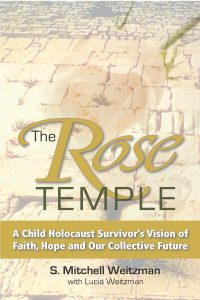This review might have had a very different tone if I were in middle school, a girl—or a Palestinian. I chose to read Where the Streets Had A Name, published in 2008 by Randa Abdel-Fattah, because I am in the process of writing a middle-grade/young adult allegory based on the Israeli-Palestinian conflict and wanted to better understand the Palestinian viewpoint, especially through the eyes of a young narrator. I was not gearing for a battle, just a great story with something I could take away.
The book revolves around thirteen-year-old Hayaat, a likeable sensitive soul who lives in Bethlehem (West Bank) and embarks on a mission to retrieve a handful of soil from her grandmother’s ancestral home in Jerusalem in order to cure her ailments. She takes the journey with her best friend, Samy, a brave Christian boy with chutzpah. Together, they encounter checkpoints, security walls, and protests along the way.
Beautifully told, with deft use of child-friendly humor and adult historical context, Hayaat is a girl to cheer for, one who struggles to come to terms with the predicament her people are in, horrific memories of her recent past, and hope for the future.
Palestinian life is well rendered, with family quirks and squabbles mixed in with generational wisdom that anyone can relate to, including Palestinians and Israelis. The Palestinians who populate Where the Streets Had a Name are not terrorists, Islamic fundamentalists, or Jihadists. They are, simply, human beings.
Unfortunately, and this is where perspective comes in, Israelis are not rendered as kindly, save for a liberal American-Israeli couple who work with a human rights watch group. Others, mostly Israeli police and military figures, are drawn one dimensionally, as cold-hearted, thoughtless characters who seem to derive pleasure from humiliating Palestinians. There is no acknowledgment that they are there to protect Israelis who have been under near constant siege since the day Israel was established.
Security walls loom large in the book—very large—but there is never any sense of why the walls are there in the first place. In one of the few mentions of suicide attacks, the concern of Abdel Fattah’s characters is not the welfare of an innocent Israeli or others who may have been killed, but what punishment awaits them from the ruthless Israelis.
Hayaat’s family longs for their pre-Israel home and life, quite understandably. Yet Abdel-Fattah makes only fleeting mention of the contextual situation that underpins much of the conflict and thus misses a golden opportunity to add some depth and understanding to the story, especially for young Palestinian readers who may not be familiar with history.
In one scene, following the 1967 Six Day War, Hayaat’s grandparents attempt to reclaim their home that had been seized by the Israelis. A Jewish couple now living there answered the door and refused a request to leave. They were Holocaust survivors, the woman said; her entire family had been gassed. The response is one commonly heard from Palestinians. “I’m sorry for what happened to your family, but why must we be punished.”
Whatever the merits of either party’s position in that encounter, what’s missing from both is empathy. And it reaches back to the origins of the state of Israel, and the crushing of Palestinian hopes for a state of their own. Jews beleaguered by pogroms and the Holocaust nevertheless might have been more sensitive to Palestinian concerns about land grabs and domination. And Palestinians might have recognized the beleaguered state of Jewish refugees and acknowledged their historical ties to the land. Compromise and cooperation could have conquered the day. Instead we have more than six decades of war and terror, where one lovely fictional girl lives in an occupied land under conditions no one should have to experience.
As the book concludes, our Palestinian heroine retains her desire to not only survive, but to love. “That in the end,” she says, “we are all only human beings who laugh the same, and that one day the world will realize that we simply want to live as free people, with hope and dignity and purpose.”
If she can express the same wish for the people across the wall, then indeed there may be hope.
#Readukkah



